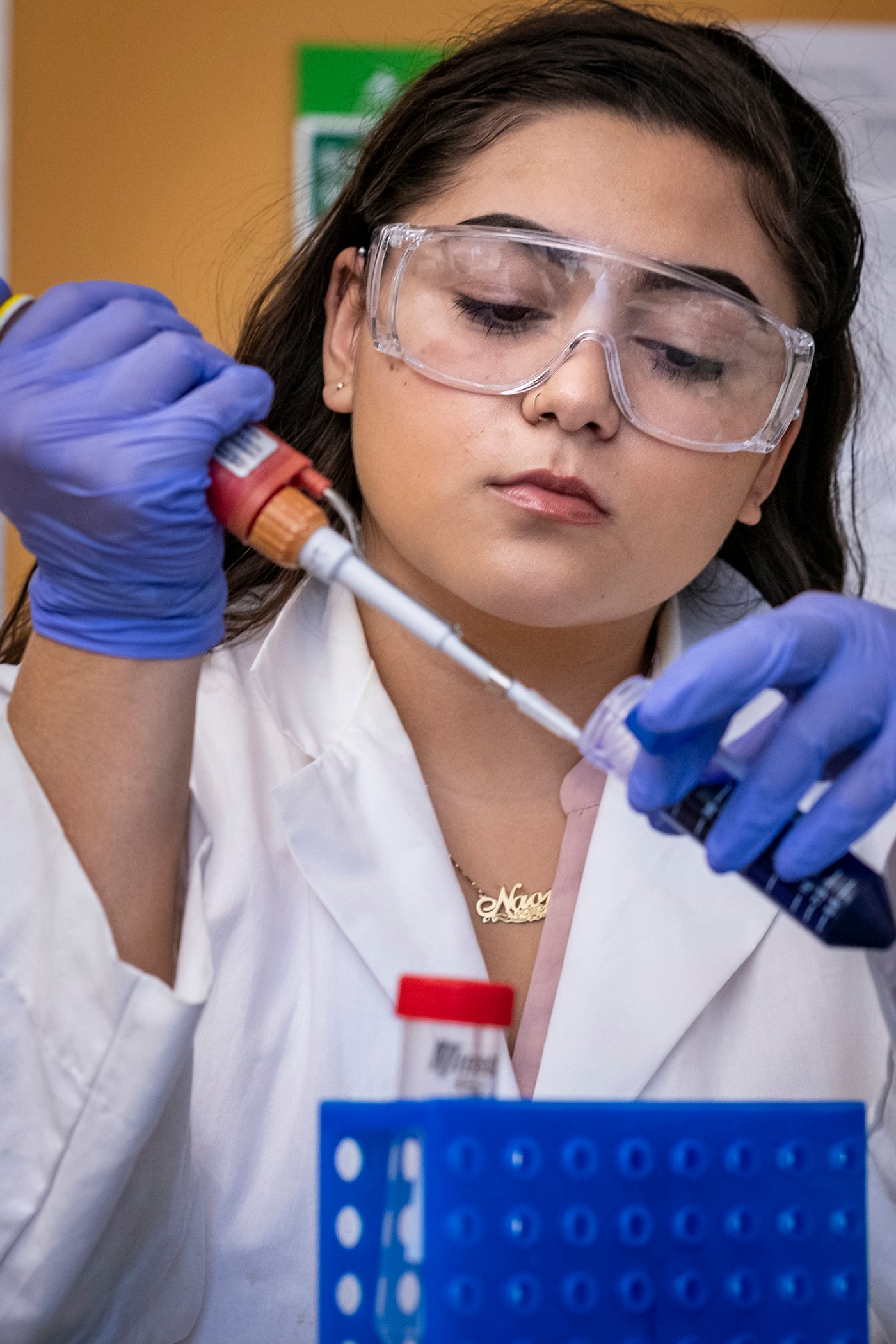KINGSTON, R.I. – January 15, 2020 – Two scientists at the University of Rhode Island have been awarded a five-year, $1.25 million grant from the National Institutes of Health to encourage historically under-represented students to gain research experience in the biomedical sciences.
The grant to Assistant Professor Bryan Dewsbury and Associate Professor Niall Howlett will provide four students each year with a $10,000 scholarship and a $13,000 stipend, plus additional funds for research materials and travel to conferences.
In return, the students will work in a biomedical, behavioral or health sciences research laboratory of their choice for 10 to 15 hours per week conducting research.
“The research world – especially biomedical – is not very diverse, and that’s a problem for basic equity issues of access,” said Dewsbury. “In addition, without sociological diversity, you lack a diversity of ideas. It’s especially a problem because there are consequences from the kinds of questions scientists ask and don’t ask.
“How research is conducted is so far removed from what happens in the classroom that many students don’t know what research really is,” he added. “We need to send a clear message to these students about how science is done – the act of conducting research and getting answers and learning from it.”
The grant is the first training grant awarded by NIH to the University, and Dewsbury and Howlett hope it will open the door to additional grants that will help them build a culture of undergraduate research by under-represented students.
“We want to see more students of color in our labs,” Dewsbury said. “We want to broaden the reach of undergraduate research at URI. This grant is our first step in addressing this issue.”
Naomi Pajarillo is one of the first four students to benefit from the grant. A URI junior from Providence studying cell and molecular biology, she knew she wanted a career in biomedical research but struggled to afford tuition.
“I applied to the program not only to receive financial support to relieve my anxiety about the cost of tuition, but to also really become immersed in a training program that would give me the tools for success,” she said. “Between weekly faculty meetings, trainings, and our trip to the annual Biomedical Research Conference for Minority Students, I have already experienced so much more than I could have ever hoped for as an undergrad.”
Pajarillo is working in Pharmacy Professor Angela Slitt’s pharmacology lab, where she is studying metabolic diseases and the effects of environmental chemical compounds on the liver and other tissues.
In addition to the funding for tuition, stipend and research expenses, the grant will also pay for the students to have a summer research experience at another university. “That will help them broaden their wings and experience something else,” said Dewsbury. “They might even choose to spend that time at a university they are considering for graduate school.”
Pajarillo said she will probably apply for a summer research program at Yale University or the University of Cincinnati School of Medicine.
“The program has solidified that I do, in fact, want to pursue a career in research, either as a toxicologist or pathologist,” she said. “I have explored so many aspects of biomedical research professionally and hands-on that all of the doubts I had have gone away.”
As part of the grant program, Dewsbury has established a mentorship program at the Paul Cuffee School in Providence whereby each of the URI scholarship recipients will serve as a mentor to high school students interested in science research. The URI students will host the Paul Cuffee students at the Kingston campus twice each year, advise them on their college applications, and serve as a role model.
“Our aim is for the Paul Cuffee students to see a future version of themselves on campus in our trainees,” Dewsbury said. “We don’t want them to be scared by the prospect of college, and instead to own it, and to do it.”
Following the success of their first training grant, Dewsbury and Howlett are considering applying for similar funding from other agencies, including a training grant from the National Science Foundation, a post-baccalaureate grant program that provides research experience for students between their undergraduate and graduate education, and an initiative to expand diversity in URI’s graduate programs in the STEM disciplines.
“The NIH, in particular, is committed to diversifying the biomedical workforce and has created several programs to promote diversity and inclusion in biomedical research,” said Howlett. “We believe that the University of Rhode Island is uniquely poised to become a leader in driving change in this area.”

